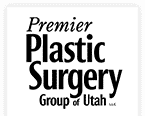General anesthesia is a medication solution that induces a sleep-like state in patients before surgery. It uses a combination of drugs that are administered intravenously and inhaled as gases to block the brain’s pain response and reflexes. General anesthesia is administered by a specially trained anesthesiologist who monitors your breathing and other vitals while under the influence of the drugs.
Why is General Anesthesia Administered?
If you’re having surgery, the anesthesiologist, nurse anesthesiologist, and your doctor will advise you on the best anesthesia option for you. They will take into account your preferences, overall health, and the specific surgery you’re undergoing. General anesthesia is generally recommended for the following procedures:
- Those that may take a long time
- Those that can result in heavy blood loss
- Those that expose you to cold
- Those that affect your breathing, especially surgeries involving the chest or upper abdominal area
What are the Risks of General Anesthesia?
General anesthesia is generally safe for most individuals without serious underlying health conditions. Risks are usually due to the procedure rather than the anesthesia. Older people are at greater risk for serious complications during surgery, especially if they have any of the following conditions:
- Diabetes
- Drug allergies
- High blood pressure
- History of adverse anesthesia reaction
- History of heavy alcohol use
- Medications that can increase bleeding
- Obesity
- Obstructive sleep apnea
- Seizures
- History of smoking
- Previous stroke
How to Prepare for General Anesthesia
The preparation for anesthesia varies by the specific procedure you’re undergoing. While we can lay out a few general rules here, the best way to know how to prepare is to ask Dr. Howland.
When you’re under general anesthesia, the muscles in your digestive tract are relaxed to prevent stomach acid from traveling to your esophagus and lungs. This is why it’s essential to follow Dr. Howland’s orders to avoid eating and drinking for a certain number of hours before your surgery. Usually, you must fast for around six hours but can drink water up until a few hours before the procedure.
Dr. Howland may advise you to continue taking your regular medications, but you might need to avoid blood thinners and aspirin for some time before surgery as they can lead to complications. Certain vitamins and supplements should also be avoided before surgery. Always be honest with Dr. Howland with which supplements you take so you know what to avoid.
If you have diabetes, Dr. Howland will instruct you on any changes to your medication as you prepare for surgery. You may need to reduce your intake of insulin or refrain from taking oral medication before the procedure.
You should also make Dr. Howland aware of sleeping conditions such as sleep apnea. The anesthesiologist will have to carefully monitor you during and after the surgery to ensure your safety.
Before the Procedure
A day before your scheduled surgery, the anesthesiologist will call you to confirm your treatment plan and confirm your health history, allergies, prescription and over-the-counter medications and supplements, and previous experiences with anesthesia. This allows them to convey your requirements for preparation and ensure they have all the right information from Dr. Howland.
During the Procedure
Anesthesia medications are intravenously delivered to you through your arm. You may also be given a mask that administers gas. You may also have a tube inserted into your mouth and throat when you’re unconscious to ensure you get enough oxygen. Dr. Howland may also use other techniques to help manage your breathing. You are continuously monitored by the anesthesiologist throughout the procedure, and they will adjust the administration of sedatives according to your vitals if needed.
After the Procedure
Once your surgery is finished, the anesthesiologist reverses the medications so you can awaken. You will feel groggy and confused at first and may experience side effects like sore throat, dry mouth, nausea, vomiting, sleepiness, muscle aches, or shivering.
Safe Cosmetic Surgery in Draper, UT
All of the precautions and preparations for general anesthesia are for the benefit of your comfort and safety. General anesthesia ensures your customized elective surgery goes well and you get the natural results you want from your treatment. To learn more about how Dr. Howland performs cosmetic surgeries, or for questions about the anesthesiologists he uses, call Howland Plastic Surgery today or contact us online.





 |
| 